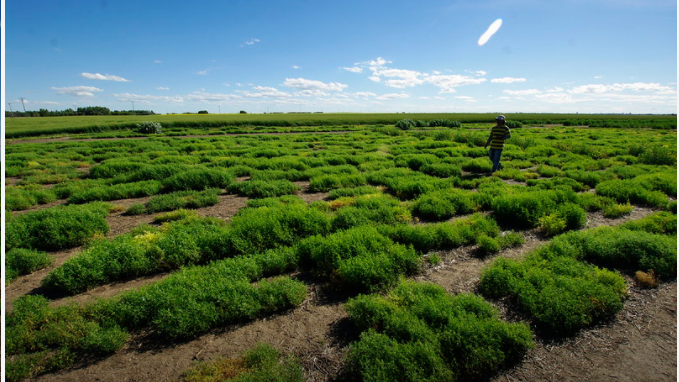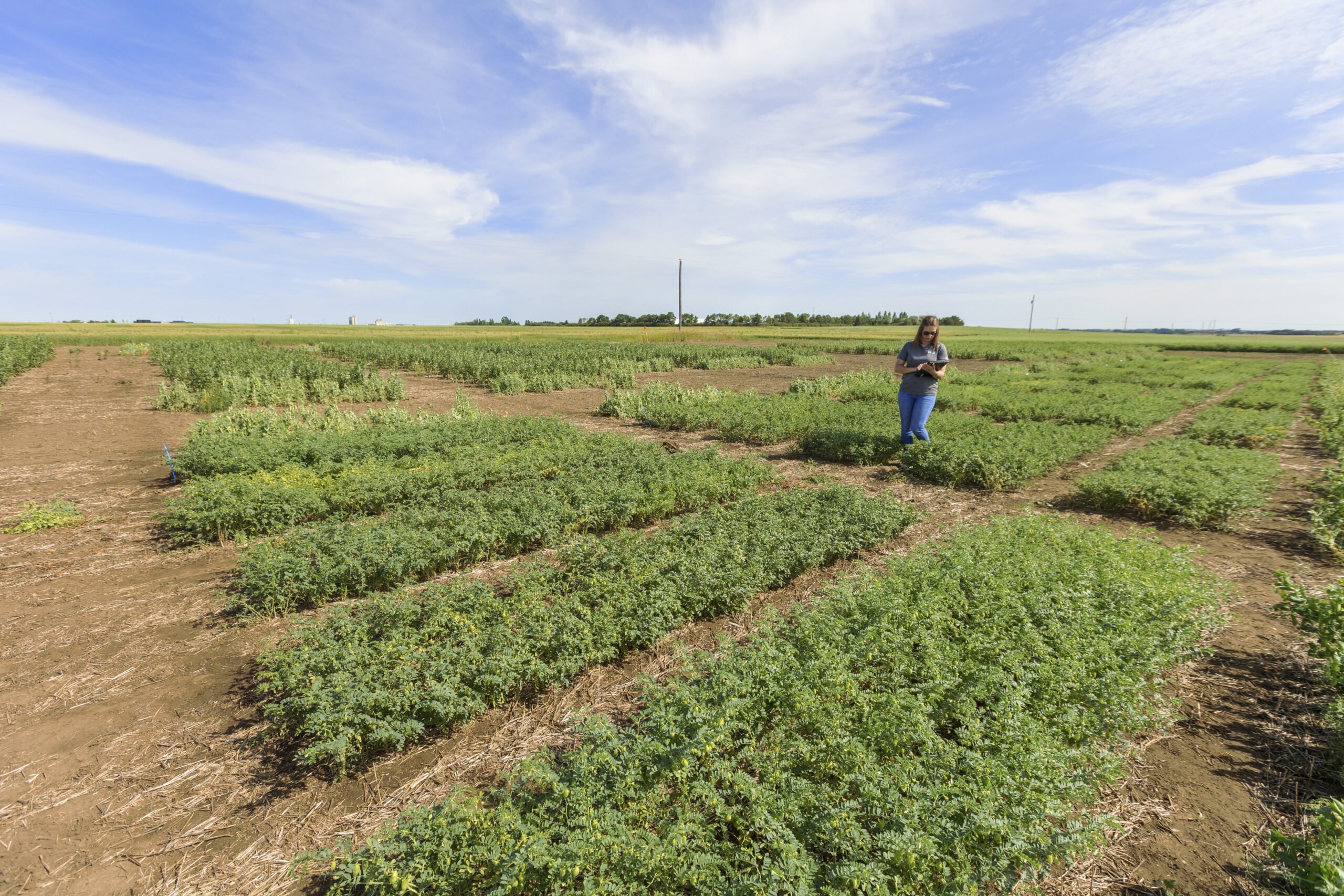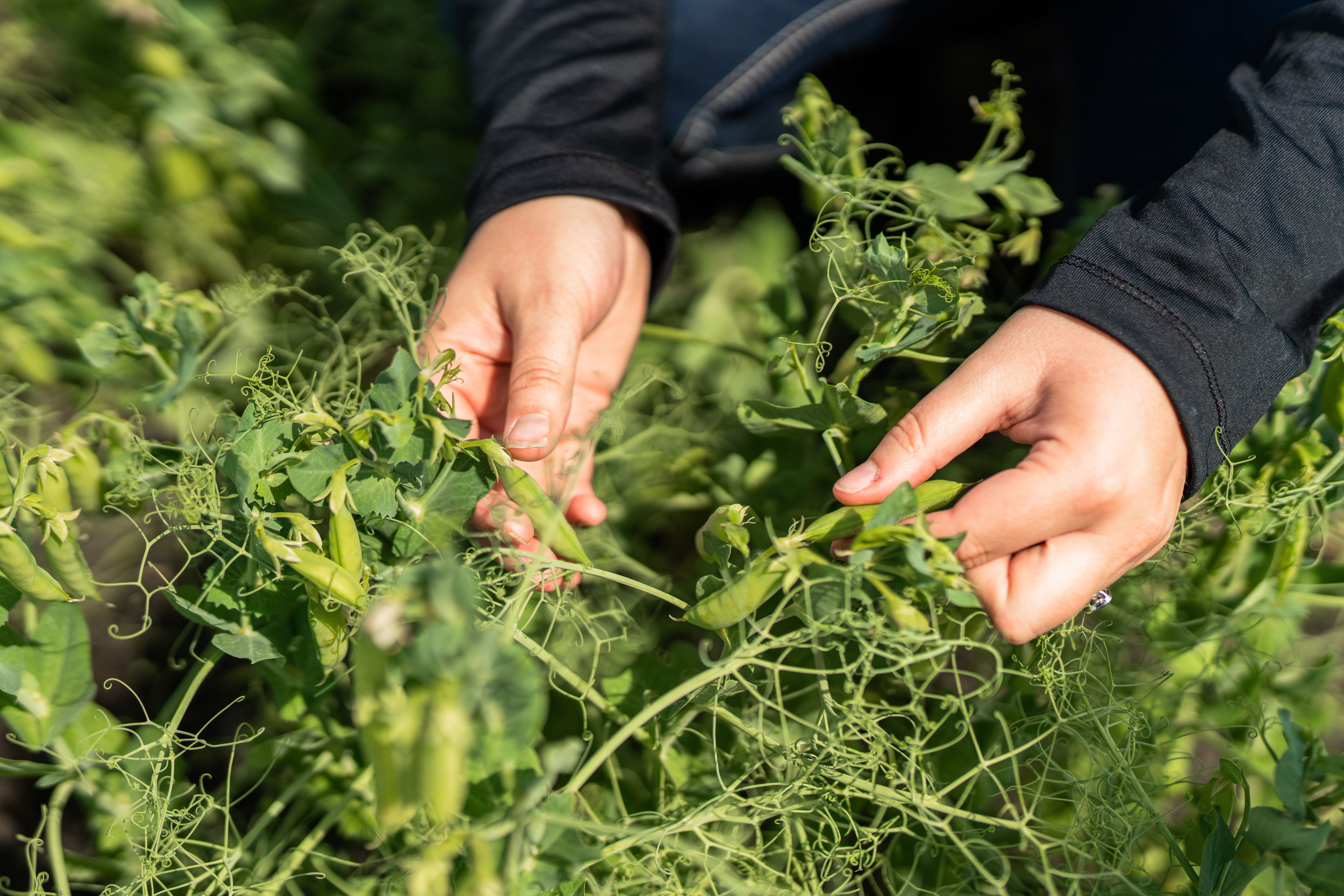By Jane Caulfield
To be agile means, simply stated, having the ability to respond to a changing environment with efficiency. For Dr. Kirstin Bett, Professor in Plant Sciences at the University of Saskatchewan, and her team, AGILE stands for the Application of Genomics to Innovation in the Lentil Economy. It is the name of their $8 million project that harnessed genetic traits from lentil varieties to help ensure the plants grown in Saskatchewan can thrive in Saskatchewan’s climates and soils.
“In this project, we characterized the genetic variability available within the primary and secondary gene pools of genus Lens through genotyping and phenotyping,” says Dr. Bett. “The information was used to determine the genetic basis of the contrasting adaptation characteristics of lentils from three main growing regions of the world.”
The result is the ability to develop new varieties that access genetic variability from exotic lentils, and control for desirable traits while removing traits that limit grower success. For example, disease resistance from lentils that grow in other parts of the world can be more effectively introduced into those that are well adapted to the Saskatchewan environment and growing conditions.
“Numerous factors influence crop production decisions, and a clearer understanding of these will help increase producer uptake of this important crop,” says Dr. Bett. “This project allowed us to increase breeding efficiency by accessing new germplasm without introducing problems to the superior germplasm we already have.”

Photo credit: Derek Wright, University of Saskatchewan

Photo credit: Derek Wright, University of Saskatchewan
This kind of research allows breeding programs and growers to grow and adapt and continue to meet increasing market demand.
“Growers are used to us delivering high yielding varieties that are demanded by the marketplace,” says Dr. Bett. “We do not want to mess that up by providing something that does not flower at the right time or does not mature at the right time just because it is not happy growing here in Saskatchewan.”
Prior to the research conducted by the AGILE team, limited genetic diversity in the Canadian lentil breeding program meant that it would soon no longer be able to keep up with industry demand. The solution the team came up with was to identify and harness traits that exist in wild lentils and cultivars from around the world to create lentil varieties growers can depend on.
“Resources developed by this project will improve the agility of the lentil breeding program in Saskatchewan by introducing genetic diversity with greater precision and speed up the breeding cycle,” says Dr. Bett.
“The results of AGILE will help to break the genetic bottleneck and continue to provide new traits and adapted lentil varieties for Saskatchewan growers,” says Dr. Dave Greenshields, Director of Research and Development at Saskatchewan Pulse Growers.
“By collecting and characterizing different cultivated and wild lentils from around the world, Dr. Bett and her colleagues are helping to ensure that the breeding program keeps Saskatchewan ahead of the curve in terms of yield, disease resistance, and quality traits in lentil. This important work could not have been completed without producer funding.”
This research project was funded by Genome Canada, Saskatchewan Pulse Growers, Western Grains Research Foundation, and University of Saskatchewan.

Published December 2020


